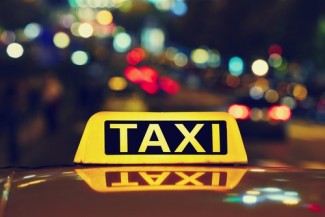Taxi group may sue Chicago over differing regulations for ride-hailing services, federal judge rules

Image from Shutterstock.
A lawsuit alleging that the city of Chicago treats taxi drivers differently from ride-hailing companies like Uber and Lyft may go forward, a federal judge has ruled.
The Cook County Record reported Wednesday that U.S. District Judge Sharon Johnson Coleman has rejected the city’s motion to dismiss a lawsuit brought by the Illinois Transportation Trade Association and some of its members.
On the same day, the Chicago Tribune reported, taxi drivers staged a protest at both of Chicago’s major airports, blocking lanes to call attention to city plans to raise taxi fees and permit ride-hailing companies to pick up fares at O’Hare and Midway.
The plaintiffs are challenging a 2014 city ordinance regulating ride-hailing services, called “transportation network providers” by the law. Those providers must pay the city $10,000 a year to operate—regardless of how many cars operate under them—and carry certain insurance, the Cook County Record reports.
By contrast, the plaintiffs argue, conventional taxi drivers are required to carry more insurance; pay $1,200 a year; undergo background checks and drug tests; submit to city inspections; and abide by maximum meter rates. Taxi medallions, which are required to enter the business, are limited and therefore can be sold for as much as $360,000. Taxi affiliations pay $500 a year plus $15 per affiliated medallion.
The lawsuit argues that these differences constitute a violation of their right to equal protection under the law. They had also argued that they amounted to an unconstitutional taking of property and a breach of contract, but the judge dismissed those claims.
Last week, two Chicago aldermen proposed a tax on “surge charges” which would also result in different treatment. Although the tax would be limited to $1 per ride for traditional taxis, ride-hailing companies could be charged as much as $3 per ride under the proposal.
In Coleman’s opinion, issued Tuesday, she wrote that the city of Chicago has not shown “material differences justifying disparate treatment” of traditional taxis and ride-hailing services.
“Both the purported differences between taxis and TNPs and their relationship to the stated rationale appear utterly arbitrary to this Court,” Coleman wrote.
There were no reported conflicts or arrests at Chicago’s airports on Wednesday, but the Tribune noted that perceived Uber drivers were attacked at a similar protest in France.
The ride-hailing companies are represented by the libertarian nonprofit Institute for Justice.



